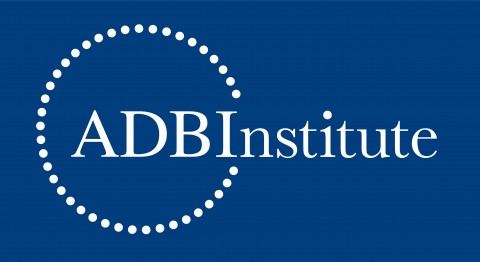Leadership capacity development on non sewered sanitation and FSM
2017 - 2019 • Asian Development Bank Institute (ADBI)
Purpose
To enable policymakers and government officials to develop effective and evidence-based policies around non-sewered sanitation and fecal sludge management
Activities
During 2017–2019, in partnership with the Bill & Melinda Gates Foundation (BMGF), the Asian Development Bank Institute (ADBI) aims to deliver leadership capacity development programs targeting government decision makers, officials in implementing agencies, and professional staff of international organizations. The topics will cover innovative design solutions and policy instruments to accelerate implementation of NSS and FSM components in projects supported by development partners in Asian developing countries.
Working closely with ADB Headquarters and various knowledge partners, ADBI aims to develop and deliver a 1-week high-level leadership program to high-level participants. The program will comprise evidence-based case studies prepared by ADBI and knowledge partners on NSS and FSM policies and programs. Additionally, ADBI’s annual work program regularly convenes high-level decision makers, especially from ministries of finance in Asian developing countries. In these programs, ADBI will propose evidence-based recommendations.
Government ownership for and continued commitment to NSS and FSM is a constant challenge. In 2018, ADBI and its development partners will convene high-level round-table meetings to address the challenge in a two-pronged manner.
Government officials, policy makers, and professional staff of international organizations contribute to innovative design and accelerated implementation of NSS and FSM components in projects supported by development partners in Asian developing countries.
This investment will enhance technical knowledge of decision makers and senior officials from ADB's Developing Member Countries from South Asia (particularly from India) and senior officials of development banks (ADB, World Bank, IsDB, and JICA) ADB's senior officials on FSM and non-sewered sanitation.
Plans are under way to deliver the following:
1. Through a high-level leadership program, ADBI and its development partners will actively liaise with national governments to identify participants who have a role in decision-making and in choosing project locations to implement NSS and FSM over the medium to long term.
2. ADBI aims to actively engage and effectively transfer relevant knowledge and skills to high-level participants through highly intense evidence-based case studies.
3. Through evidence-based policy recommendations, ADBI will prioritize and create an enabling environment to implement NSS and FSM in government programs.
4. ADBI will also partner with national and regional knowledge partners (from academia and think tanks) who can replicate and scale up leadership capacity programs for policy makers and government leaders.
Countries of activity
Location of main activity
Objectives
Through this grant, ADBI envisages setting up an enabling platform to systematically develop leadership capacity through programs that can be expeditiously implemented, replicated, and scaled up over the medium term.
ADBI envisages being known as a leading institute in the region for building high-level officials’ capacity to handle NSS and FSM.
Further information
Countries where this project is being implemented: Primarily India along with other Asian countries, including Bangladesh, Nepal, Bhutan, and Mongolia.
Research or implementation partners: i.school–University of Tokyo, Japan Social Innovation Centre (JSIC), Lee Kuan Yew School of Public Policy (LKYSPP), UNESCO–IHE, Japan Sanitation Consortium (JSC), K-Water, Asia Pacific Water Forum, and ICHARM
Videos
Capturing Economic Spillover Effects to Enable Better Sanitation (presentation by Dave Robbins, December 2017)
Contact information
K.E. Seetha Ram
Login to see the e-mail-adress of the contact person.
S. Nakabayashi
Login to see the e-mail-adress of the contact person.
Filter tags
Bill & Melinda Gates Foundation Capacity development Cities East Asia & Pacific Emptying and transport (non sewered) Enabling environment and institutional strengthening Faecal sludge treatment processes Multilateral organisation Political processes and institutional aspects Politicians and local decision makers Specific to one or several countries Treatment of faecal sludge Urban (entire city)
Attached files
Links

Uploaded by:
Elisabeth von Muench (Elisabeth)















